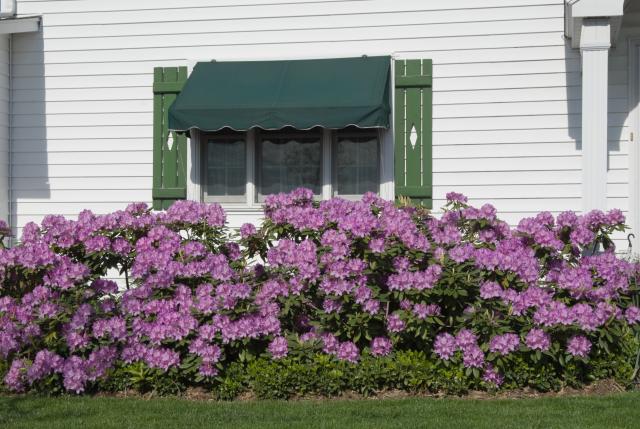
Now that summer has finally arrived in Victoria and we’re getting prolonged spells of warm weather, it’s time to think about how we can cool our homes efficiently, so we save both money and resources while keeping the summer heat out.
While fans, evaporative coolers and air conditioners play their part when cooling a house, experts at Sustainability Victoria recommend optimising passive cooling techniques such as shading and insulation before flicking the switch.
Matt Genever, Sustainability Victoria’s Interim CEO, says householders can reduce energy consumption and keep costs low while keeping their home cool if they focus on five key factors.
The top five are: insulation; window design, orientation and coverings; draught proofing; ventilation; and landscaping.
“These passive cooling techniques can keep your home comfortable and minimise the need for fans and air conditioning,” Mr Genever said.
“But if you do need to switch on the air conditioning remember to set it between 24°C and 26°C – every degree lower will increase running costs by around 10 per cent.”
Sustainability Victoria’s top tips to stay cool this summer and save energy:
• Insulation – it’s not just about keeping the warmth inside in winter; it’s about keeping the heat out in summer. Install insulation in your ceiling, in walls and under suspended timber floors to seal out the warm air.
• Windows – glass can let a lot of heat into your home, especially if you have large west, east and north-facing windows that aren’t adequately shaded. Use of external shading is best as it stops the sunshine before it hits the window, but even internal shading can reduce heat entry and improve comfort.
• Draught proofing – sealing up gaps and cracks will minimise the amount of hot air entering your home on summer days. It’s a relatively easy and cost-effective upgrade to help reduce your cooling bills.
• Ventilation – once the temperature starts to drop in the evening, or after a cool change, it’s important to open your doors and windows to flush warm air from your house and allow cooler outside air to enter.
• Landscaping – careful selection and positioning of plants can provide summer shading and act as a buffer against hot winds.
If you do need extra help to cool things down, fans can be a cheap and effective way to stay comfortable on warm, humid summer nights. Fans can keep you feeling more comfortable without having to operate your air conditioner at lower temperature settings and assist with natural ventilation, helping to move air through your home.
When things really heat up, air conditioners can be used to extract heat from inside, cooling the air to a more comfortable temperature. Reverse cycle air conditioners are the most efficient, but follow the tips below to ensure you get the most out your system.
Tips for using air conditioners efficiently:
• Keep windows and doors closed.
• Minimise the area to be cooled by closing doors to rooms that don’t require cooling.
• Use the thermostat correctly by setting it between 24°C and 26°C for living areas – every degree lower in summer will increase running costs by around 10%.
• Don’t leave your air conditioner running – it’s a myth that running your air conditioner 24/7 is cheaper to run. And don’t forget to turn the entire system off at the switchboard completely when you go away on a holiday.
• Use a timer or programmable thermostat to turn your system on a half hour or so before you come home so that it is comfortable when you arrive, and to ensure that it is switched off overnight.
• Shade the compressor unit – If the compressor unit (the part located outside) is exposed to full sun during the day, shade it with an awning, shade mesh or a similar structure. Be careful not to restrict air movement around the unit.
• Maintain your air conditioner – clean air filters regularly and have your air conditioner serviced regularly according to the manufacturer’s instructions.
“By cooling your home efficiently, you can keep the summer heat out, make your home cheaper to run and reduce greenhouse gas emissions,” Mr Genever said.
For more information, visit Sustainability Victoria’s reduce cooling costs at home.






